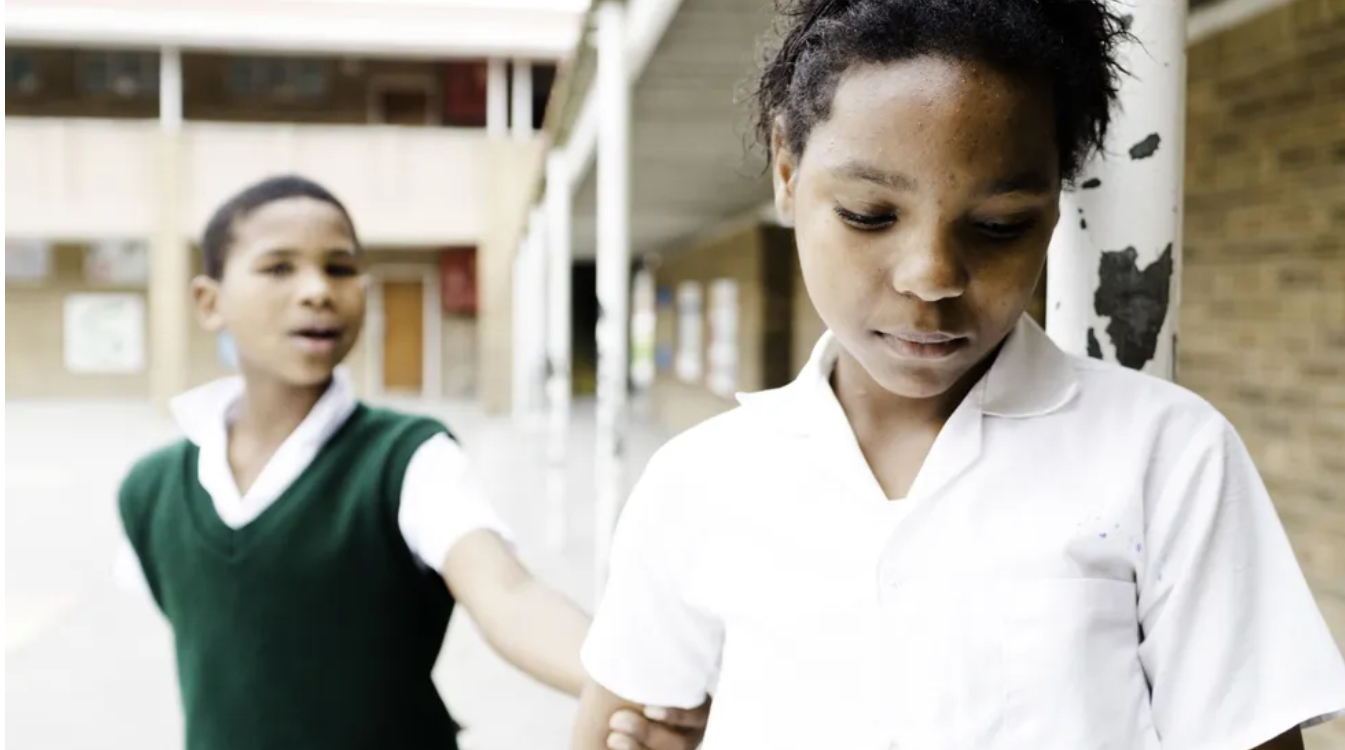Psychological safety within a family is a safe and nurturing evnironment which accords its members a sense of confidence to freely share their ideas, thoughts and concerns without fear of negative consequences.
Psychological safety is a paramount parenting sphere to focus on as it determines both emotional and mental health of your family. Cultivating psychological safety in your family ensures that all family members enjoy good emotional and mental well-being. Psychological safety is vital for a family to thrive.
4 Stages of Psychological Safety
According to Founder/CEO Timothy R Clarke, a renowned global authority in senior executive development, there are 4 stages of psychological safety within an organisation. In our case, we shall briefly examine these four stages within the context of a family – which is the fundamental organisation within society.
1. Inclusion Safety – This involves every family member (especially children) feeling welcomed and esteemed part and parcel of the family. It calls for parents to be intentional on building emotionally safe homes where each child feels wholly loved and accepted from birth.
Inclusion safety gives children and all family members an identity.
2. Learners Safety – This is an environment which allows individual members within the family to act upon their intrinsic desire to learn and explore their curiosity without fear of retribution when they make mistakes along the way. When parents cultivate this learners safety, children acquire knowldge faster, become more self-confident, develop self-trust and are better equipped to be independent and responsible when they reach maturity.
Learners safety allows children to learn, do and become
3. Contributor safety – Children and family members reach this stage of psychological safety when they are invited to participate age appropriately in family affairs. For example, pre-schoolers are allowed to pray over their meals but a parent prays over a family dinner. Children and teenagers are assigned specific age appropriate personal and household chores and are expected to perform consistently and indepently while parents hold their parenting roles dutifully.
Contributor safety is key in teaching children that they play a key role in the family as a whole.
4. Challengers safety – This level allows children and other family members to challenge the satus quo of the family without the risk of damaging parental attachment. Notably this is seen in adolescence where children become more vocal on their choice of clothing, hairstyles, social circle and extracurricular activities. It is vital that parents embrace openness and allow their children some level of challengers safety within appropriate boundaries.
Challengers safety is key within a family as it enables children individuate and become independent and autonomous. It helps rid enmeshment and codependency with siblings and parents alike.
Importance of Psychological safety in a family

1. Emotional Support and Well-Being
When family members feel psychologically safe from unconditional acceptace, they are more likely to develop high self-esteem and self-confidence. Growing children feel valued and understood, which contributes to their overall emotional well-being. When parents are attuned to psychological safety, they create an environment where children feel comfortable expressing their thoughts, feelings and concerns without fear of judgment or retribution. This open communication helps resolve conflicts amicably and strengthens parent-child relationships.
2. Healthy Development
For children, a psychologically safe environment is essential for healthy all-round development. It allows them to explore, make mistakes and learn without fear. This environment is critical for their cognitive, social and emotional growth. Similarly, parents who feel psychologically safe with each other are able to provide the necessary support and guidance to their children. Further, they enjoy a more fulfilling marriage and create a nurturing environment that promotes healthy growth and development for all family members.
3. Resilience and Coping
A family that provides psychological safety helps its members develop better coping mechanisms and resilience. In particular, growing children are better equipped to handle stress and adversity, knowing they have a supportive network of parents and siblings to rely on. A family that provides psychological safety can prevent the onset of substance abuse and mental health issues such as anxiety and depression in children. This is because family members feel secure, supported and receive the required nurturing. This greatly reduces the likelihood of unhealthy coping mechanisms when faced with adversity.
4. Trust and Bonding
Psychological safety is the foundation of trust within the family. When members know they can rely on each other without fear of betrayal, it strengthens family bonds and promotes unity. Further, it fosters positive relationships where family members feel loved and accepted. This sense of belonging enhances overall family harmony and stability, keeping toxicity and dysfunction at bay.
5. Encouragement and Motivation
In a psychologically safe family environment, individuals are more likely to pursue their goals and ambitions. They feel encouraged and supported in their endeavors, knowing that their family believes in them. Family members feel free to be creative and innovative without fear of failure or criticism. This can lead to personal growth and the development of new skills and interests.
6. Conflict Resolution
All families encounter conflict from time to time. Parents who have no awareness on how to handle conflict can easily toss their family into toxicity and dysfunction. However, cultivating psychological safety allows for healthy conflict resolution. Family members can address issues constructively, leading to solutions that satisfy everyone involved rather than exacerbating tensions.
Factors that undermine psychological safety in a family

1. Unhelpful parenting styles
Some parenting styles choke all the necessary conditions requred for psychological safety to thrive in the family. A good example is strict authoritarian parenting where parents enforce rigid rules without room for flexibility or input from children. The consequence of this style is that children feel unheard, misunderstood and undervalued especillay as they grow older. This often leads to children forming attachments to peers or predators and groomers who make them feel heard and valued, only to irreversibly take advantage of them or lead them astray.
Strict disciplinarian parenting can aslo make children feel unsafe and constantly on edge, afraid of making mistakes and facing severe, repressive consequences. The result of this is children growing up with low self-esteem, low confidence and a cripling lack of self-trust.
2. Lack of Emotional Availability
Emotional availability means being present in a way that goes beyond physical proximity. It’s about being open to truly understand, empathise, and reciprocate the emotions of your spouse and children. Emotional unavailability occurs when parents withdraw emotionally from their children whether due to their own stress, mental health issues or simply not prioritizing emotional connection with the children.
Parents who are inconsistent in their emotional availability create confusion and insecurity in children. These children are always on edge never knowing if their emotional needs e.g unconditional love, approval, guidance, attention e.t.c will be met. Furthermore, parents who are emotionally erratic or who respond unpredictably when children need emotional closeness can make children feel unstable and unsafe, unsure of when they will receive love and support or anger and rejection.
3. Overly Critical Environment
An overly ctitical environment is characterised by frequent criticism and negative comparisons. Consistently criticizing children, whether about their behavior, achievements or personality can erode their self-esteem and sense of worth. They may start to believe they can never meet their parents’ expectations.
On the other hand, comparing children unfavorably to others, such as siblings or peers, can foster feelings of inadequacy and resentment. This further fuels the child’s distrust in his own abilities undermining their sense of worthiness, ability to contribute and ability to learn new things.
4. Lack of Boundaries
Parents who do not set or respect boundaries, either their own, the family’s or their children’s, can create a tumultuous and unpredictable emotional environment. This lack of structure can make children feel disarrayed, unbalanced and unsure of what to expect.
Overly invasive behaviors, such as prying into grown children’s personal lives or not respecting their privacy, can make them feel violated and unable to trust their parents. In addition, parents with weak or no boundaries can easily create unhealthy dependence on their children. This can lead to children failing to gain independence and become their ‘own person’.
5. Parental Conflict
Frequent and intense conflicts between parents can create a tense and hostile environment. Children often feel caught in the middle and may worry about family stability. When parents model unhealthy ways of handling disputes such as yelling, name-calling or avoidance, children may feel insecure and anxious about expressing their own feelings or disagreements fearing they might tear the family apart.
6. Inconsistent Parenting
When parents are inconsistent in their rules, expectations, and disciplinary actions, they inadvertently create confusion and insecurity in children. Childrenoften struggle to understand what is expected of them and feel unsure about their standing with their parents.
How To Cultivate And Nurture Psychological Safety In Your Family

To create and nurture psychological safety in your family, you have to be aware of the emotional and mental hazards present in your home. The above section provides some of the common common hazards that undermine psychological safety of a family. Let’s explore some of the most effective ways to maintain psychological safety in your home.
1. Model Accountability
Accountability is the willingness to accept responsibility for one’s own feelings, words and actions. Further, it encompasses being cognisant on how one’s words and actions affect those around them and acting accordingly. Parents model accountability by owning up for their feelings, words and actions.
When accountability is embodied from the inception of the family, children learn to be accountable as well. Having unique family values, rules and regulations that family members should adhere to is very helpful in modelling accountability. This is because it is clear to know when someone has barked up the wrong tree making it easy to admit and self-correct.
To strengthen this virtue, be empathetic and understanding towards your children – especially when they make mistakes – as opposed to taking punitive measures there and then. Being understood, guided and corrected in a loving way helps children be more open to sharing their needs, opinions and even owning up when they err.
Accountability is key in maintaining long-term psychological safety in a family. This is because when members embody accountability, blame and criticism have no room within your family.
2. Open And Honest Communication
Open communication is paramount in creating psychological safety. As a parent, you model this first by being honest with your self and with your spouse. It is only then when you can assuredly lead the entire family to embrace open communication and honesty.
When parents encourage their children to communicate openly and honestly, the emotional and mental environment within the home becomes more and more conducive for giving and receiving feedback. Children feel free to express their mistakes, opinions, thoughts and ideas without any fear of punitive consequences. Correspondingly, parents feel confident advising and correcting their children without fear of rebellion, defiance or severed parent-child bond especially in teenagehood.
3. Improving your Emotional Intelligence (EI)
Emotional intelligence is the ability to perceive, understand and manage not only your own emotions but those of others as well. Improving your EI greatly contributes to self-awareness which in-turn cultivates empathy – the ability to understand what another person is going through.
EI has five aspects which you can improve gradually as you go along the parenting journey. They are as follows:
- Self-awareness
- Empathy
- Self-regulation
- Motivation
- Social skills
4. Model Acceptance
When family members feel wholly accepted, it becomes easier to embrace individuality and become more authentic as opposed to putting up a facade for parental approval. Acceptence means each one is allowed to be his/her own person within the exclusive boundaries, norms and expectations of your family.
When each member feels accepted, they experience the freedom to fully express themselves, share their ideas and voice their concerns. Similarly, parents feel included in the lives of the children and can therefore advice and offer the right support to each of their children. This greatly minimises feelings of being misunderstood, neglected or children becoming rebellious.
5. Be Reliable, Trustworthy and Consistent
Trust, reliability and consistency are key in maintaining emotional, psychological and mental security to children. Reliability means being there when your child needs you, not when you have time to be there. Being trustworthy means you keep your word and consistency means you rarely deviate from how you interact, care and give attention to your child.
These three qualities become more important in cultivating psychological safety in your family over time. As an illustration, teenagers become suspicious when their parents, who were neglectful in childhood, suddenly become interested in their lives. To ensure smooth parenting, embody and practice being reliable, trustworthy and consistent throughout your child’s life.
Conclusion
Creating and maintaining psychological safety within a family calls for parents to be intentional, consistent and to have a strong resolve to keep going when things get tough. A psychologically safe environment not only benefits individual family members but also strengthens the marriage and family unit as a whole.
EXPLORE
-

Why Psychological Safety Matters In A Family And How To Create It
-

PARENTAL FAVOURITISM – recipe for vicious sibling rivalry and family breakdown
-

UNDERSTANDING BULLYING – why children and adolescents do it, how to address and stop it.